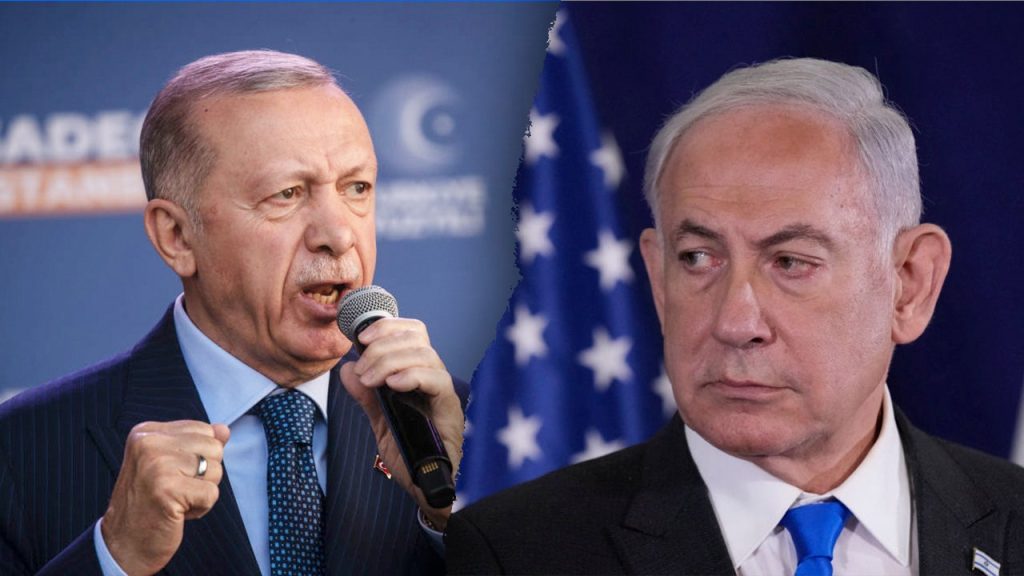Turkey has reportedly cut off all trade with Israel in protest against the war in Gaza, which has been ongoing since October 7. The move, which has not yet been formally announced by Turkey’s government under President Recep Tayyip Erdogan, is seen as a significant escalation in the nation’s response to the conflict. Israel and Turkey traded $6.8 billion worth of goods in 2023, with the majority being Turkish exports. Israeli Foreign Minister Israel Katz has criticized Erdogan, accusing him of breaking agreements by blocking ports for Israeli imports and exports. Turkey has not specified under what conditions trade with Israel might resume, prompting Israel to explore alternatives for trade focusing on local production and imports from other countries.
In addition to the trade restrictions, Turkey’s government has joined South Africa in accusing Israel of committing genocide in Gaza in a United Nations court case, further escalating tensions between the two countries. These actions coincide with rising threats against Israel from its nearby neighbors, including Iran and its terrorist proxies in Lebanon and Yemen. Israel has been at war with Hamas since October 7, when the terrorist organization sent fighters from Gaza into southern Israel, resulting in casualties and hostages. Erdogan’s government’s actions against Israel indicate a multi-faceted effort to put pressure on the country amid the ongoing conflict in Gaza.
The move to cut off all trade with Israel represents a significant step in Turkey’s protest against the war in Gaza and its stance against Israel. Israeli officials have expressed concern over the potential economic repercussions for both countries, as well as the broader implications for international trade agreements. Israel has announced plans to explore alternative trade options focusing on local production and imports from other countries in response to Turkey’s actions. The lack of clarity from Turkey on the conditions for trade to resume adds to the uncertainty surrounding the situation, further straining relations between the two countries.
In response to Turkey’s trade restrictions and accusations of genocide, Israel is facing a challenging geopolitical landscape with threats from neighboring countries including Iran and its proxies. The mounting tensions between Israel and Turkey come against the backdrop of ongoing conflict in Gaza, where Hamas has been engaged in a prolonged war with Israel. The involvement of Turkey in the United Nations court case accusing Israel of genocide adds another layer to the already complex dynamics in the region. As Israel navigates these challenges, it is focused on ensuring the security and stability of the country in the face of multiple threats and pressures from various sources.
The actions taken by Turkey against Israel, including cutting off trade and joining the UN court case, highlight the deepening rift between the two countries amid the conflict in Gaza. The economic impact of the trade restrictions and the broader implications for international relations are significant factors in the ongoing tensions. Israel’s response to explore alternative trade options reflects a proactive approach to ensuring economic stability and resilience in the face of external pressures. As the situation continues to evolve, both countries are likely to face further challenges in managing the fallout from Turkey’s actions and addressing the broader geopolitical implications of the conflict in Gaza.


